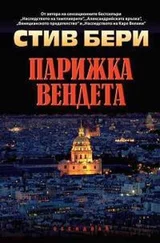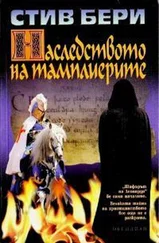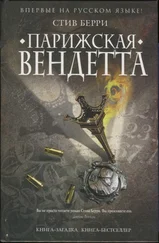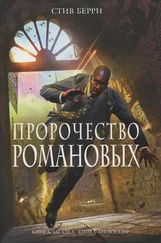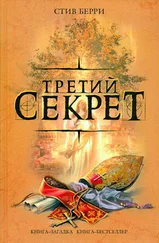She couldn’t allow Engle to see either of them. The element of surprise was finally on their side. She faced the gallery owner again. “I’ll come back in a little while. After I look around a bit more. You’ve been most helpful.”
She stepped to the door and exited just as Engle entered the café across the street. She hustled two doors down onto the covered stoep of what appeared to be a closed government office. She retreated into the front door alcove and made sure she could see both the café and the street in both directions.
She could not risk openly searching for Cotton, so she found her cell phone to call him.
No service.
So she decided to stay put and hope she saw him before Engle did.
Cotton walked the streets and sensed an underlying German texture to Nohana. In one of the cafés, two blocks from the place he and Cassiopeia had visited, he heard a patron hail the waiter with Herr Ober. He noticed on the posted menus at several eateries German beers and Teutonic cuisine. In the shop windows were Hohner harmonicas, cuckoo clocks, and Zeiss optical supplies. There was what appeared to be a German club, which seemed expensive, along with a theater and, surprisingly, a small orchestra house. He passed two jewelry stores that were stocked with a variety of semi-precious stones, garnet being the most notable, a stone quite prominent in southern Germany.
Just beyond a small laundry he came to a curious establishment with the catchy name of The Boer’s House. He turned a brass knob and entered what appeared to be a museum. There were lots of bandoliers, stuffed wildlife, stones, and fossils, along with pictures, books, cuttings, and relics that told the local story. Thinking there might be someone inside who could be helpful, he casually began studying the various exhibits, his mind absorbing the details.
From the placards he learned that the label Afrikaner was tricky. It in no way implied African, but instead was any white person of non-British descent who spoke a twisted form of Dutch known as Afrikaans. Most Afrikaners were Dutch, Flemish, French Huguenot, or, most interesting, German. Boers were those of Dutch extraction, mainly farmers, who initially forged the Free State. Boers hated the British, the British hated the Boers, and they both hated natives, which was how Africans seemed to have been labeled.
The displays showed some of the bawdy, bursting tent towns, then villages leaping to life, then the coming of the white magnates. The slant was distinctly Boer, and the concentration camps from the Anglo-Boer War were vividly depicted. Just as Gerhard Schüb had said in his letters to Ada, thousands of women and children died in the British camps between 1899 and 1902. Interestingly, although photos showed that Africans likewise were interned, little to no mention was made of their suffering.
But African culture was not ignored in the exhibits.
Perhaps, he thought, it was a concession to the black majority government that now ruled both South Africa and the Free State. The various grainy images depicted the Africans as a handsome people with aquiline noses, low brows, and stern expressions. Many of the women wore Victorian dresses that swept the ground, and the men enjoyed an obvious regality. He started to notice more of the captions beneath the photographs and how they captured, though certainly not intentionally, a similar attitude for both natives and Boers.
Both had sought freedom and peace.
And been denied.
One prayer that a local chief was quoted as saying seemed to fit each group perfectly.
O Lord, help us who roam about. Help us who have been placed in Africa and have no dwelling place of our own. Give us back a dwelling place. O God, all power is yours in heaven and earth.
“May I help you?”
He turned. A white man, about fifty, with a knotted face like solidified glue stood before him. His English sounded like Cockney and German combined.
“Just trying to absorb some of the local flavor.” He tried to make light, but his host seemed intent on solemnity.
“You will not find a good taste here.”
“Your exhibits are informative.”
“They are propaganda. Forced upon us.”
A strange observation from a white man in Africa.
“Our new government wants everything non-biased. We must present a fair view of our heritage.” Sarcasm laced his declaration.
“I take it you are not pleased with majority rule.”
“I am no liberal.”
And he believed that observation. He decided a direct question might be the best approach. “Do you know of a man named Gerhard Schüb?”
The curator shook his bulbous head. “Never heard of him.”
“How about Luis Soreno?”
The man shook his head. “Sorry. No.”
He could sense the conversation was going nowhere, so he said, “Think I’ll look around a bit more. If you don’t mind.”
His host swept his arms out into the air. “Enjoy it all.” Then the portly man retreated across the room.
He turned his attention back to the displays and came to a series that dealt with gold. It wasn’t until after the war, in 1947, that vast amounts of ore were mined, then exported, earning millions annually. Owned exclusively by whites, but worked totally by blacks, the gold mines built the Orange Free State into a fifty-thousand-square-mile bastion of ultra-apartheid. Just as in the gold rush days of the American West, whole towns owed their existence to the proximity of a nearby mine, and he noticed that Nohana/Paarl was not among the benefited communities. Most lay to the west and north, on the other side of the Free State.
He was gazing at a series of photographs concerning the diamond mines when a face in one of the images caught his attention. Three men stood in a parlor upon a wood floor dotted with lion and zebra skins. They wore safari shirts, light-colored trousers, and wide hats. Each was tall, lean, and proud. There was a gaiety in their expressions, as if the issues that worried most people—famine, poverty, oppression—meant nothing to them. It was the face of the middle man that brought instant recognition.
Albert Herzog.
Marie Eisenhuth’s father.
He stared close to be sure.
The eyes, nose, and mouth were the same from the photos he’d seen at the chancellor’s schlöss and at Ada’s house.
Apparently all had been taken in relatively the same time frame.
Postwar.
Another connection.
The case against Marie Eisenhuth was not looking good.
He wanted to ask the proprietor about the picture but decided that even if the man knew something he was unlikely to obtain any useful information, so he opted to find Cassiopeia.
And decide then what next to do.
CHAPTER FORTY-FOUR
Cassiopeia hugged the alcove’s wooden wall and tried to appear like she was seeking a respite from the midday sun, but her attention continued to focus on the café across the street. Josef Engle had been inside nearly fifteen minutes. A couple of patrons had come and gone, but Engle had yet to be seen.
Her mind raced with the possibilities.
Engle was here for a reason, and surely it concerned Gerhard Schüb. What else would have brought him to Nohana? It was the only explanation that made sense. Engle certainly possessed more information than she and Cotton had uncovered. What was it he knew that they didn’t? In his letters Schüb had sounded like a reluctant participant in Bormann’s grand scheme, but with Nazis, whether willing or drafted, it seemed safe never to assume anything.
No matter.
Josef Engle was a current reality. Here. In Nohana.
Across the street.
She reached behind her jacket and felt for the gun. The pistol was nestled against her hip in a reassuring embrace. Both she and Cotton had decided to stay armed.
Читать дальше

